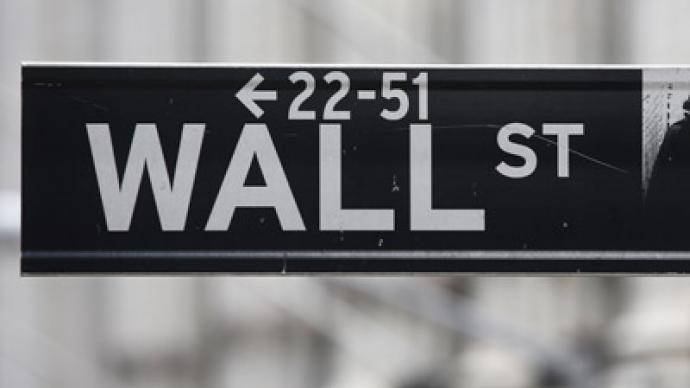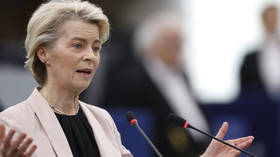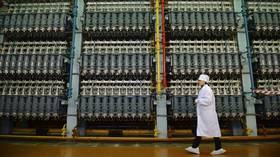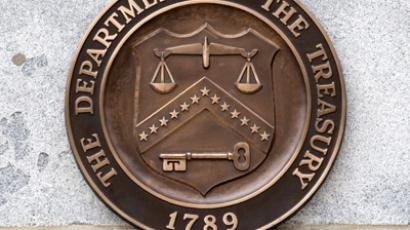US corporations cut investment to recession level on fiscal fears

US companies are slashing investment plans at the fastest pace since the 2008 global financial crisis, amid fears of the looming economic slowdown in case the ‘fiscal cliff’ becomes a reality.
Half of the nation's 40 major publicly traded companies such as Ford Motor Co., Boeing Co., and Intel Corp. have announced plans to curtail capital expenditures and put on ice big projects this year or next, the Wall Street Journal reported. The uncertainty about federal budget policies including spending cuts and tax hikes due to come into force on January 2 is among the main reasons for the investment pullback.If the fiscal problems aren’t solved in the near future, "people will sit on their war chests of cash and return it to shareholders. You'll have a retarded growth trajectory," said David Seaton, chief executive of Fluor CorpThe WSJ survey found out that overall investment spending declined 1.3% in the third quarter, while business investment in equipment and software stagnated during the same period for the first time since early 2009. Corporate investment in new buildings has declined 4.4%. Also exporters say supplies to major markets such as the eurozone are dropping due to easing demand and economic downturn in the region, creating another drag on firms' expansion plans.US companies are worried that if lawmakers fail to find a solution to the fiscal challenges it could push the country into recession and slash consumer spending. Huge public debt and budget deficit are also a concern for the firms.The chief executives of more than 80 major US corporations, including Aetna, Goldman Sachs, Macy’s and Boeing issued a joint manifesto calling on Congress to bring down the federal deficit. Corporate chiefs urged policy makers to prepare a fiscal plan that would “stabilize the debt as a share of the economy, and put it on a downward path.” The plan should "include comprehensive and pro-growth tax reform, which broadens the base, lowers rates, raises revenues and reduces the deficit," the CEOs say.The US deficit in 2012 is estimated to reach $1 trillion for a fourth year in a row, bringing the national debt by $16 trillion or about 102% of GDP.Meantime President Barack Obama invited a number of business executives over the weekend, including Warren Buffett, Apple Inc. CEO Tim Cook and J.P. Morgan Chase's James Dimon to discuss his plans to avert a budget crisis.While corporate giants slash their expansion plans the investment sentiment among small businesses remains positive, according to a survey by the National Federation of Independent Business. It found out that small firms boosted investment spending in October, though it remains below its pre-crisis level. Their confidence comes with a rebound in US consumer confidence, which has returned to a five-year high, as well as stronger job growth and lower fuel prices.














